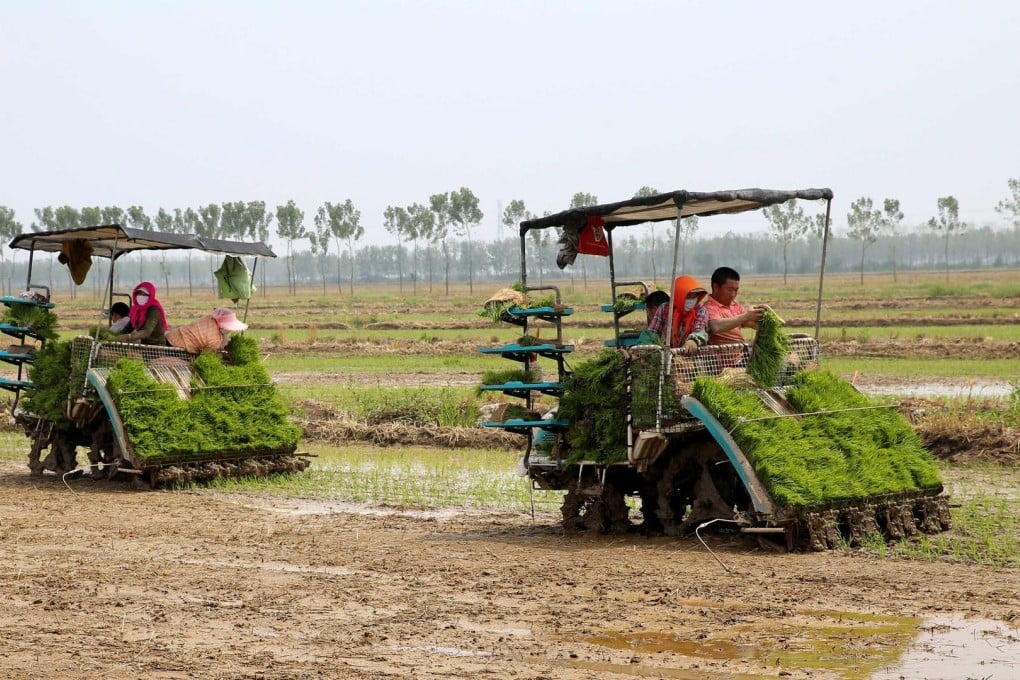China encouraging the wrong kind of farm mechanisation with its generous subsidies
Mark Godfrey says generous government assistance for farmers to buy low-tech machinery in fact undermines Beijing's goal to create bigger and more efficient farms

Anyone who has visited China's annual autumn farm machinery fairs in Changchun or Shenyang will have seen a bewildering array of machines and brands. But the exhibition features hundreds of brands selling farm machinery of similar specifications - most of them low-tech solutions for a country seeking to modernise its farming sector.
Tractors have proliferated in recent years because China's agricultural ministry and central government are bent on increasing the rate of mechanisation of the country's farms and have been dishing out subsidies to ensure that happens.
The amount went from 70 million yuan in 2004 to an incredible 23 billion yuan (HK$29 billion) last year, according to the China Association of Agricultural Machinery Manufacturers. In many cases, farmers get subsidies covering over a third of the price tag of a tractor or harvester.
There is certainly an argument in favour of the availability of low-cost machinery for small farmers, in particular because the Western corporations that dominate global farm machinery production (in value terms) prefer to focus on hi-tech, high-price machines.
But there is a fundamental contradiction between China's drive for greater scale and output in farming and a government-subsidised proliferation of low-end machines designed for small farms. Giving farmers up to a third of the price tag of a tractor has been a boon for the makers and dealers of tractors but it hasn't necessarily helped achieve the Chinese government's stated goal of higher crop yields through mechanisation and the creation of larger-scale, more efficient farms.
Not surprisingly, perhaps, subsidies have drawn a large number of "me-too" players into the sector, many of them building low-tech machines for quick, low-price sales to farmers who have been encouraged and financially assisted to buy machines for a mechanised harvest. A case in point is the entry of Chinese carmaker Chery Automobile, which had no expertise in agricultural machinery prior to launching its first batch of tractors in 2010. Chery executives who talked to me at a machinery show in Shenyang credited the presence of subsidies in boosting sales as a major reason for entering the sector.